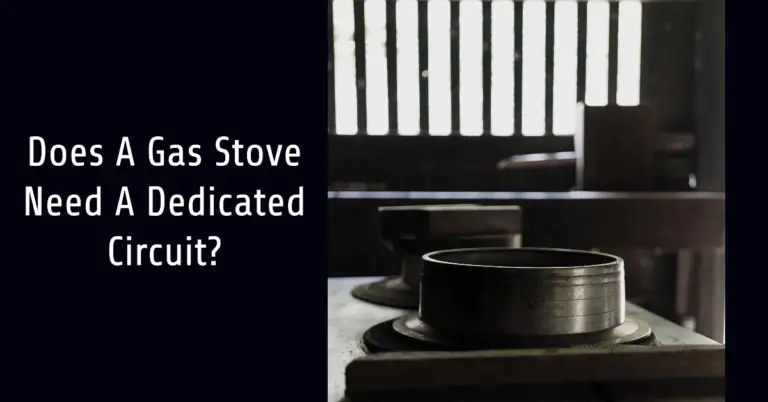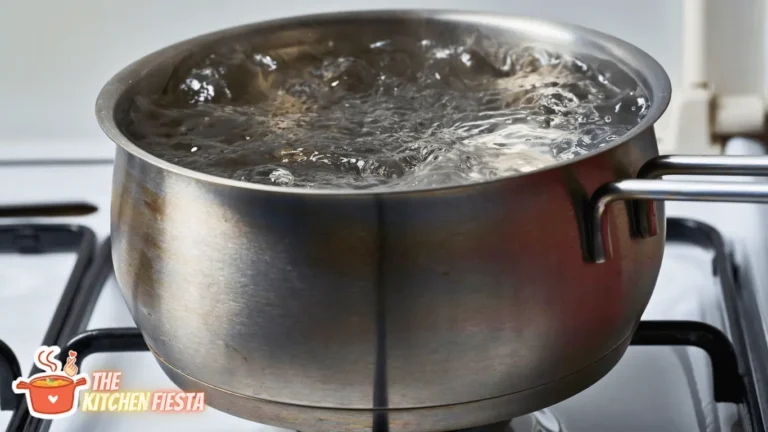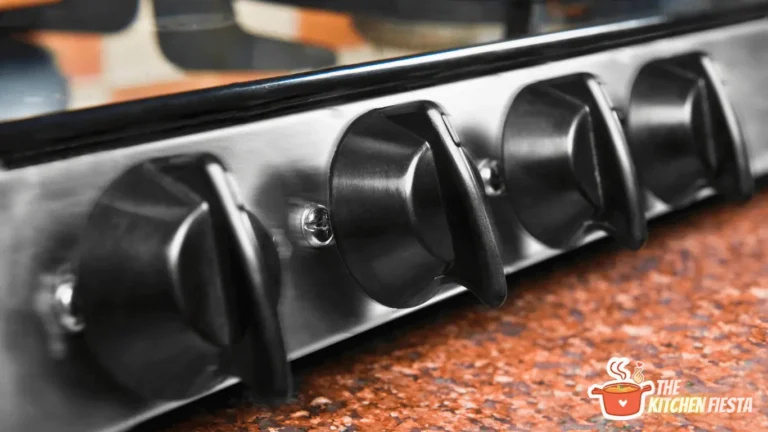Alcohol Stove vs Canister Stove: Which One is Better for Camping?

When it comes to camping, hiking, or hunting, having a reliable stove is essential. Two popular options for backpackers and campers are alcohol stoves and canister stoves. Both have unique advantages and disadvantages, and the choice between them ultimately depends on the user’s specific needs and preferences.
Alcohol stoves are lightweight, inexpensive, and easy to use. They are fueled by denatured alcohol, which is widely available and can be found in most hardware stores. On the other hand, canister stoves are more efficient and offer better temperature control. They use pre-pressurized fuel canisters that contain a mixture of propane and isobutane, which can be easily screwed onto the stove. While they are more expensive than alcohol stoves, they are also more durable and can be used in various conditions.
In this article, we will look closer at alcohol and canister stoves and compare their advantages and disadvantages. We will also provide some tips on how to choose the best stove for your camping needs. By the end of this article, readers should better understand the differences between the two stoves and be able to make an informed decision on which one is better for their next camping trip.
Understanding Alcohol Stoves
Alcohol stoves are popular portable stoves used by hikers, campers, and backpackers. They are lightweight, compact, and easy to use. In this section, we will take a closer look at the design and functionality of alcohol stoves and their advantages and disadvantages.
Design and Functionality
Alcohol stoves are typically made of lightweight materials such as aluminum or titanium. They contain a small container containing the alcohol fuel, a burner, and a pot stand. The burner has small holes or jets that allow the alcohol to vaporize and burn, producing heat transferred to the pot.
Alcohol stoves are designed to be simple and easy to use. To operate an alcohol stove, the user pours alcohol into the container, lights it, and places the pot on the stand. The heat produced by the burning alcohol is then used to cook food or boil water.
Advantages
There are several advantages to using an alcohol stove. One of the main advantages is their lightweight and compact design, which makes them ideal for backpacking and camping trips. They are also straightforward to use, requiring no complicated setup or maintenance.
Another advantage of alcohol stoves is that they are relatively inexpensive to operate. Alcohol fuel is cheap and widely available, making it an affordable option for outdoor enthusiasts. Additionally, alcohol stoves are very quiet when in use, which can be a benefit for those who prefer a peaceful camping experience.
Disadvantages
While there are many advantages to using an alcohol stove, there are also some disadvantages. One of the main disadvantages is that alcohol stoves are not as powerful as other types of stoves, such as canister stoves or white gas stoves. This means they may take longer to cook food or boil water, which can be a drawback for some users.
Another disadvantage of alcohol stoves is that they are less efficient than other stoves. Alcohol fuel contains less energy than different fuel types, which requires more fuel to produce the same heat. This can make alcohol stoves less cost-effective in the long run.
Alcohol stoves are a lightweight, compact, and easy-to-use option for outdoor enthusiasts. While they may be less powerful and efficient than other stoves, they are a reliable and affordable choice for those who prioritize portability and simplicity.
Understanding Canister Stoves
Design and Functionality
Canister stoves are a popular type of backpacking stove that uses a pressurized canister of fuel to heat food and water. These stoves typically use propane, butane, or a blend of the two as fuel. The fuel canister is attached to the stove with a threaded connection, and a valve on the canister allows the user to control fuel flow to the burner.
Canister stoves are designed to be compact and lightweight, making them a popular choice for backpackers and hikers. They are also straightforward to use, with no priming or pumping required. Attach the fuel canister to the stove, turn on the valve, and light the burner.
Advantages
One of the most significant advantages of canister stoves is their convenience. They are straightforward to use and require minimal setup, making them an excellent choice for backpackers who want to enjoy the outdoors more and have less fuss with their stoves.
Canister stoves are also very efficient, with most models able to boil water in just a few minutes. They are also reliable, with few moving parts to break or wear out.
Another advantage of canister stoves is their versatility. They can be used in various temperatures and conditions, making them an excellent choice for camping and backpacking trips in various environments.
Disadvantages
One of the main disadvantages of canister stoves is their cost. They are generally more expensive than alcohol stoves, which can be a drawback for budget-conscious backpackers.
Another disadvantage of canister stoves is their weight. While they are certainly lighter than traditional camp stoves, they are still heavier than alcohol and twig stoves, which can concern ultralight backpackers.
Finally, canister stoves can be difficult to use in cold weather. When the temperature drops below freezing, the pressure in the fuel canister can drop, making it challenging to maintain a consistent flame. Some canister stoves are designed to work in cold weather but are generally more expensive than standard models.
Comparative Analysis
Fuel Efficiency
When it comes to fuel efficiency, canister stoves are the clear winner. They require less fuel to cook the same amount of food as alcohol stoves. Canister stoves use propane or butane gas, which burns hotter and more efficiently than alcohol. In addition, canister stoves have adjustable flame control, allowing users to conserve fuel when cooking at lower temperatures. Alcohol stoves, on the other hand, are less fuel efficient and require more fuel to cook the same amount of food.
Cooking Speed
Canister stoves are faster at boiling water and cooking food than alcohol stoves. They produce more heat and boil water in under three minutes, while alcohol stoves can take up to eight minutes to boil the same amount. Canister stoves also have better temperature control, allowing for more precise cooking times. Alcohol stoves are best suited for cooking simple meals that do not require high heat.
Portability
Alcohol stoves are lightweight and compact, making them ideal for backpacking and camping trips. They are easy to pack and only take up a little space in a backpack. Canister stoves, on the other hand, are heavier and bulkier than alcohol stoves. They require more space and are more challenging to pack. However, canister stoves are more durable and withstand rough handling and extreme temperatures.
Weather Conditions
When cooking in extreme weather conditions, canister stoves are the better option. They perform well in cold and windy conditions and maintain a consistent flame. Alcohol stoves, on the other hand, are less reliable in extreme weather conditions. They can be affected by wind and cold temperatures and may take longer to heat up or cook food.
Safety Considerations
When it comes to camping stoves, safety should always be a top priority. Both alcohol stoves and canister stoves come with their own set of safety considerations that campers should be aware of.
Alcohol Stoves
Alcohol stoves are generally safe as long as they are used correctly. However, there are a few things to keep in mind when using an alcohol stove:
- Flammable Fuel: Alcohol is highly flammable, so keeping it away from open flames and other heat sources is essential. Make sure to store your fuel in a safe place and never use it near a campfire or other open flame.
- Ventilation: Alcohol stoves produce carbon monoxide and other harmful gases. Hence, it’s essential to use them in a well-ventilated area. Avoid using them in enclosed spaces like tents or small shelters.
- Stability: Alcohol stoves can be unstable if not placed on a level surface. Please set up your stove on a stable surface to prevent it from tipping over.
Canister Stoves
Canister stoves are also generally considered to be safe, but there are a few safety considerations to keep in mind:
- Explosive Fuel: Canister stoves use a pressurized fuel canister, which can be dangerous if improperly handled. Store your fuel canister in a cool, dry place, and never puncture or expose it to heat or flames.
- Ventilation: Like alcohol stoves, canister stoves produce carbon monoxide and other harmful gases, so using them in a well-ventilated area is essential.
- Stability: Canister stoves can be top-heavy, so setting them up on a stable surface is essential to prevent them from tipping over.
Overall, both alcohol stoves and canister stoves are safe to use as long as campers take the necessary precautions. Campers can enjoy a safe and enjoyable camping experience by following these safety considerations.
Cost Implications
When it comes to cost, alcohol stoves are generally the cheaper option. They are simple in design and can be made from various materials, such as aluminum cans or soda cans, which can be found for free or cheaply. Additionally, the fuel for alcohol stoves, denatured alcohol, is relatively inexpensive and widely available.
On the other hand, canister stoves tend to be more expensive. They require a compressed gas canister, which can be costly to replace. However, canister stoves can be more fuel-efficient than alcohol stoves, saving money in the long run. It’s important to note that the cost of canister stoves varies widely depending on the brand and features.
Cost is a primary concern, so that an alcohol stove may be the better option. However, a canister stove may be worth the investment if fuel efficiency and convenience are more important. It’s essential to consider the specific needs and budget of the individual camper when making a decision.
Environmental Impact
Regarding camping and hiking, it’s essential to consider the environmental impact of your equipment, including your stove. Both alcohol stoves and canister stoves have their pros and cons when it comes to environmental impact.
One advantage of alcohol stoves is that they burn a renewable resource, namely alcohol. This means they have a lower carbon footprint than canister stoves, which rely on non-renewable resources like butane and propane. Additionally, alcohol stoves produce less waste, as the fuel can be stored in reusable containers, and the stove is often made of recyclable materials.
However, alcohol stoves do have some downsides when it comes to environmental impact. For one, alcohol can be challenging to find in some areas, so campers may need to carry large amounts of fuel with them, increasing their carbon footprint. Additionally, alcohol stoves can produce more emissions than canister stoves, as they burn less cleanly.
On the other hand, canister stoves are known for their efficiency and clean-burning fuel. They produce fewer emissions than alcohol stoves and are often easier to find fuel for in remote areas. However, canister stoves do have some downsides when it comes to environmental impact. For one, the canisters can be challenging to recycle, so they often end up in landfills. Additionally, the non-renewable fuel used in canister stoves means they have a higher carbon footprint than alcohol stoves.
Conclusion
In conclusion, both alcohol stoves and canister stoves have advantages and disadvantages. It ultimately depends on the camper’s needs, preferences, and the type of trip they are planning.
Alcohol stoves are lightweight, compact, and easy to use, making them popular for backpackers and minimalist campers. They are also affordable and can be fueled by readily available denatured alcohol or HEET. However, alcohol stoves have a lower heat output and longer cook times. They could be more efficient in windy or cold conditions.
Canister stoves, on the other hand, are more powerful, efficient, and versatile than alcohol stoves. They can boil water quickly and are suitable for cooking various meals. They are also more stable and reliable in windy or cold conditions. However, canister stoves are heavier, bulkier, and more expensive than alcohol stoves. They also require pre-packaged fuel canisters, which can be challenging to find in remote areas.
When deciding between an alcohol stove and a canister stove, campers should consider the following factors:
- Trip duration and distance
- Cooking needs and preferences
- Weather conditions
- Weight and packability
- Budget
Overall, both alcohol stoves and canister stoves are viable options for camping and backpacking. It is up to the individual camper to determine which stove best fits their needs and style.
Frequently Asked Questions
Are there any disadvantages to using alcohol stoves for camping?
Alcohol stoves have some disadvantages when compared to canister stoves. Alcohol stoves are generally less potent than canister stoves, take longer to cook food, and are unsuitable for cooking in extremely cold temperatures. Additionally, alcohol stoves require fuel to be carried separately, which can be a disadvantage for backpackers who need to conserve space and weight.
Why are alcohol stoves banned in some areas for camping?
Some areas ban alcohol stoves due to the risk of fire. Alcohol stoves can be more dangerous than canister stoves because the fuel is liquid and can easily spill. Additionally, alcohol stoves can leave behind flammable residue, which can increase the risk of fire.
What are the advantages of using canister stoves for camping?
Canister stoves are generally more potent than alcohol stoves, which means they can boil water and cook food more quickly. Canister stoves are also more versatile, as they can be used in a wider range of temperatures and weather conditions. Additionally, canister stoves are generally easier to use than alcohol stoves, as they do not require fuel to be carried separately.
What kind of stove is recommended for camping?
The type of stove recommended for camping depends on the individual’s needs and preferences. Canister stoves are generally better for those who need a powerful and versatile stove. In comparison, alcohol stoves are better for those who need a lightweight and portable stove.
Is a DIY alcohol stove a good option for camping?
DIY alcohol stoves can be a good option for camping, as they are often lightweight and inexpensive. However, it is essential to note that DIY stoves may not be as reliable or safe as commercial stoves and may not perform as well in extreme weather conditions.
What is the average lifespan of an alcohol stove for camping?
The lifespan of an alcohol stove for camping depends on the quality of the stove and how frequently it is used. Generally, a well-made alcohol stove can last several years with proper care and maintenance. However, inspecting the stove regularly and replacing any worn or damaged parts is essential to ensure that it continues to function properly.






